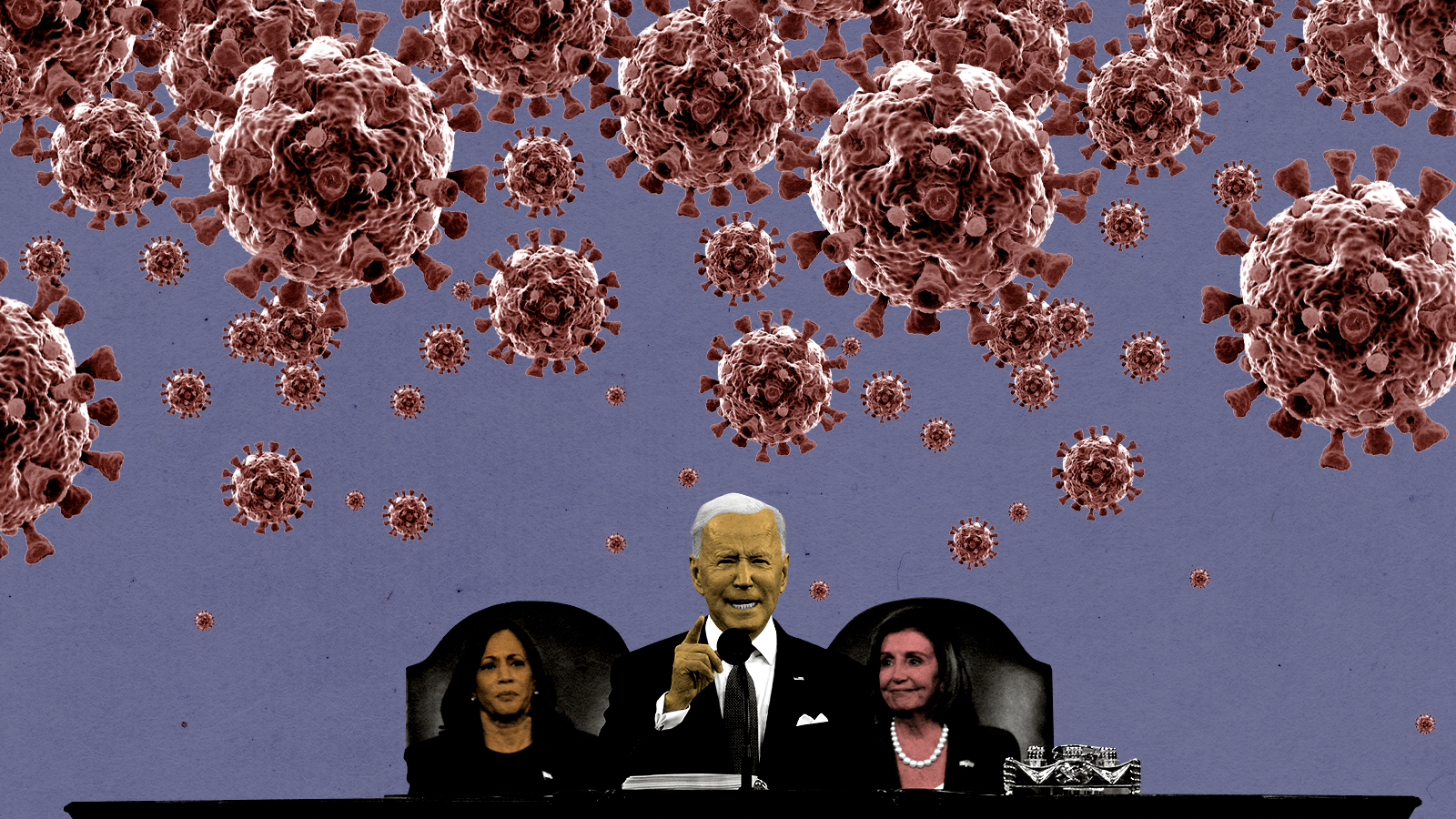Biden sounds a note of COVID optimism, but was it enough?


A free daily email with the biggest news stories of the day – and the best features from TheWeek.com
You are now subscribed
Your newsletter sign-up was successful
President Biden had much to cover in his State of the Union address tonight – an increasingly brutal Russian war of aggression in Ukraine, inflation, prescription drug prices, the opioid crisis and more. But for the sake of Democrats everywhere, Biden needed to project a note of optimism about the issue that is dragging his presidency down: the never-ending COVID-19 pandemic.
And while the president hinted that the tide of America's struggle with the virus had turned, it should have played a more central and more forceful role in his address.
The winter Omicron surge killed tens of thousands of people, a truly shocking and tragic toll, but it has retreated as swiftly as it arrived, leaving behind a country much more immunologically fortified against the virus. Whether this is the end of the crisis stage or a lull between variants is unknowable, but society cannot paralyze itself indefinitely waiting for the next bad thing to happen.
The Week
Escape your echo chamber. Get the facts behind the news, plus analysis from multiple perspectives.

Sign up for The Week's Free Newsletters
From our morning news briefing to a weekly Good News Newsletter, get the best of The Week delivered directly to your inbox.
From our morning news briefing to a weekly Good News Newsletter, get the best of The Week delivered directly to your inbox.
"We need to fill up our great downtowns," the president thundered, rightly. "We can end the shutdown of schools and businesses." But he offered very little in terms of concrete promises. "The scientists are working hard to get that done," he said of vaccines for kids under 5, but offered no timeline or real hope for parents who have waited patiently for progress.
"Our kids need to be in school," he said, but didn't outline metrics for the lifting of mask mandates on children even as our entire gerontocracy gathered at the Capitol, faces free in an enclosed space. He promised "treatments and high-quality masks" for the immunocompromised but needed to say more to reassure the vulnerable that society's reopening won't happen at their expense.
All in all, the president could have done much more to unify America's COVID divides and anxieties by tackling them head-on.
A free daily email with the biggest news stories of the day – and the best features from TheWeek.com
David Faris is a professor of political science at Roosevelt University and the author of "It's Time to Fight Dirty: How Democrats Can Build a Lasting Majority in American Politics." He's a frequent contributor to Newsweek and Slate, and his work has appeared in The Washington Post, The New Republic and The Nation, among others.
-
 How the FCC’s ‘equal time’ rule works
How the FCC’s ‘equal time’ rule worksIn the Spotlight The law is at the heart of the Colbert-CBS conflict
-
 What is the endgame in the DHS shutdown?
What is the endgame in the DHS shutdown?Today’s Big Question Democrats want to rein in ICE’s immigration crackdown
-
 ‘Poor time management isn’t just an inconvenience’
‘Poor time management isn’t just an inconvenience’Instant Opinion Opinion, comment and editorials of the day
-
 Epstein files topple law CEO, roil UK government
Epstein files topple law CEO, roil UK governmentSpeed Read Peter Mandelson, Britain’s former ambassador to the US, is caught up in the scandal
-
 Iran and US prepare to meet after skirmishes
Iran and US prepare to meet after skirmishesSpeed Read The incident comes amid heightened tensions in the Middle East
-
 Israel retrieves final hostage’s body from Gaza
Israel retrieves final hostage’s body from GazaSpeed Read The 24-year-old police officer was killed during the initial Hamas attack
-
 China’s Xi targets top general in growing purge
China’s Xi targets top general in growing purgeSpeed Read Zhang Youxia is being investigated over ‘grave violations’ of the law
-
 Panama and Canada are negotiating over a crucial copper mine
Panama and Canada are negotiating over a crucial copper mineIn the Spotlight Panama is set to make a final decision on the mine this summer
-
 Why Greenland’s natural resources are nearly impossible to mine
Why Greenland’s natural resources are nearly impossible to mineThe Explainer The country’s natural landscape makes the task extremely difficult
-
 Iran cuts internet as protests escalate
Iran cuts internet as protests escalateSpeed Reada Government buildings across the country have been set on fire
-
 US nabs ‘shadow’ tanker claimed by Russia
US nabs ‘shadow’ tanker claimed by RussiaSpeed Read The ship was one of two vessels seized by the US military
